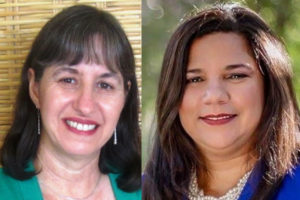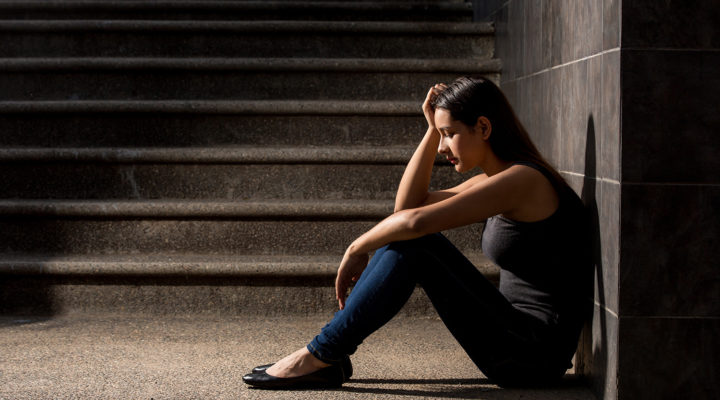La versión en español está disponible aquí.
 I (Nora) have been following for weeks the development of the #metoo campaign. When the campaign broke, I observed how many of my white/Anglo-Saxon friends came on board with it. While some of them wrote detailed stories about their abuse, others wrote only #metoo, assuming that readers would understand the message.
I (Nora) have been following for weeks the development of the #metoo campaign. When the campaign broke, I observed how many of my white/Anglo-Saxon friends came on board with it. While some of them wrote detailed stories about their abuse, others wrote only #metoo, assuming that readers would understand the message.
While I applaud the courage of the many women who have written #metoo on social media, I have been perplexed by the near silence from Latinas. I must confess that I visited the Facebook walls of many of my Latina friends, and I only found two of them who acknowledged something. Then I looked at news outlets, and the near silence was prevalent there, too. Puzzled by this silence, I conversed with some of my Latina sisters, and their response was the same: “I have not seen anything from Latinas.”
I have been around long enough to affirm that this lack of voices or acknowledgments does not mean that sexual abuse is absent in the Hispanic community. Due to my position as a leader in this community, I have been entrusted with many stories of abuse, coming mainly from Latina women, but some from Latino men, too.
In light of all this, I kept asking myself: Why this silence?
As in many cases, victims are afraid of speaking publicly about their abuse. They may be afraid of the aggressor. They may be afraid of a judging community that to certain extent is shame based, and where shame is used to control its members. They may be afraid of being blamed for the abuse. They may be afraid of adding more suffering to their current suffering or being re-victimized.
In other cases, extreme dependency leads a victim to remain silent. This happens especially to Latina victims who are undocumented, and who may be threatened with, “I will alert immigration officers if you refuse to do this or if you denounce that.” Others may be extremely dependent due to economic issues. Since they are undocumented and/or uneducated, many Latinas who are heads of households depend on their income to support their families, and they may endure sexual harassment and abuse just to continue supporting their families. In other cases, emotional dependence is a significant factor. Women, who tend to be strong relational beings, feel unable to cut ties with the aggressor. Finally, many times the aggressor is part of the family (immediate or extended). Since in culture-oriented families, families are supposed to be connected for life, the victim may feel that there is no way out, and that speaking up will be useless.
While I recognize that silence is a way of survival in this community, I want to suggest that complete silence is not the answer to this pervasive situation of sexual abuse. Here, I am not asking for public acknowledgement on social media, especially if the victim is not prepared to endure the consequences of such declaration.
If I am not asking for a public acknowledgement of #metoo, why am I writing this? I am writing because I would like to acknowledge #wetoo as a way to recognize that sexual abuse is happening in the Hispanic community. I am writing because I do not want the #metoo campaign to be boxed as a white or black issue; it is a brown issue, too. I am writing because perhaps there are some readers, women and men, who will never consider a public acknowledgement of their abuse, yet they desperately need a way out.
I am writing because pretending it does not happen will not save our future generations. Total silence will not make the abuse go away. Total silence will make things worse as it may lead victims to depression, addiction, self-destruction and a poorer quality of life.
At this point, I want to invite to this conversation my good colleague, friend and professional therapist Zoricelis Dávila. She is licensed in professional and mental health counseling, and is a doctoral student in this field. She shared with me that based on her professional practice and research, the cases of sexual abuse among Latinas and Latinos are massive. Zoricelis and I discussed this topic at length, and agreed on the following steps as a way to start finding some personal and communal healing among the Hispanic community:
- Acknowledge it. Sexual harassment and abuse start the moment that you feel uncomfortable by the way that you are looked at, talked to (including inappropriate and/or degrading jokes/comments), touched, hugged or kissed. Yes, for the most part the Hispanic community is a hugging and kissing community, but not all hugs and kisses are welcomed and acceptable. The aggressor may start with what are considered grooming words. If the victim is not alert or empowered enough to confront the abusive behavior, the aggressor may interpret this lack of action as permission to continue with further abuse. As a community, we need to acknowledge that sexual harassment and abuse are indeed present around us.
- Look for a safe place and person to speak to. If by any chance, this person tells you that you are misinterpreting, overreacting or lying, look for someone else who can listen supportively and confidentially.
- Find help. If the abuse has been extreme, there are private and public institutions with professional counseling that can help you to process this abuse. Dealing with the issue will set you on a path to healing and to a better life.
- Establish boundaries for yourself, and the most vulnerable around you. Setting boundaries is not a common practice in communal societies, but it is something necessary. It refers to setting limits around you (physical, spiritual, emotional and financial). These boundaries will protect you in times of danger, and will allow you to live a healthier and richer life.
- If you are in an extremely dependent situation, look for ways to become more independent. This may take time, but even small baby steps will take you to a better place. Find a good church or support system that may help you in this endeavor.
- Always keep hope that there is a better life for you. In Christ, there is always the possibility to cope, be resilient and overcome. The goal is to start a process where the victim will no longer see herself/himself as a victim but instead as a survivor. There is hope, but we need to start the process by acknowledging and talking about the problem of sexual harassment and abuse in our communities.
- Even though it may seem strange and daring right now, once you continue with the process, eventually you will be able to acknowledge in more public settings #metoo. By doing this, you will become a comforter to other victims as they start their own process of healing. God invites us to comfort others in their afflictions as God has comforted us in ours (2 Corinthians 1:3-4).
In a communal culture such as the Hispanic one, it makes sense that we move forward right now with a #wetoo, until we are ready to say individually #metoo. There are steps to follow between these two, but wherever you are in the process, you, woman or man, brown, black, or white, keep moving forward. Total silence is not an option. With God’s blessings, there is healing and hope for a better future.
Nora O. Lozano
#metoo
Zoricelis Dávila
#metoo


